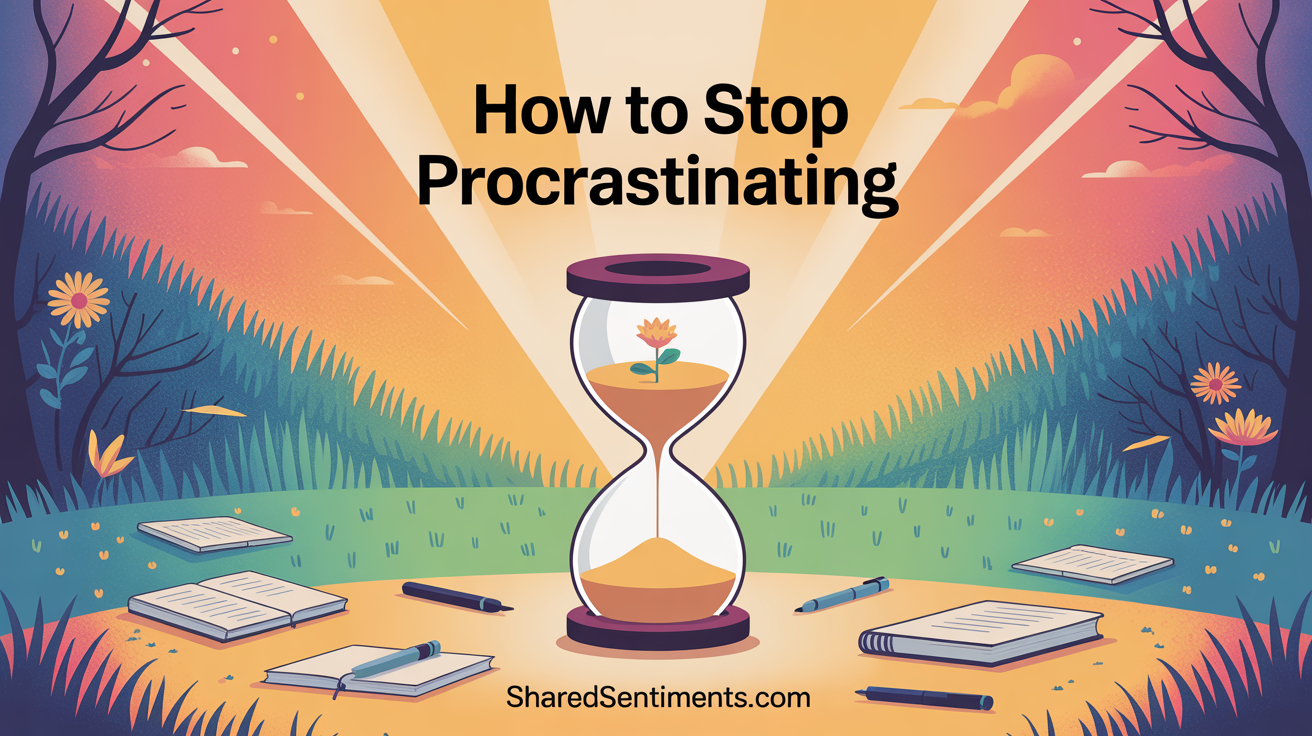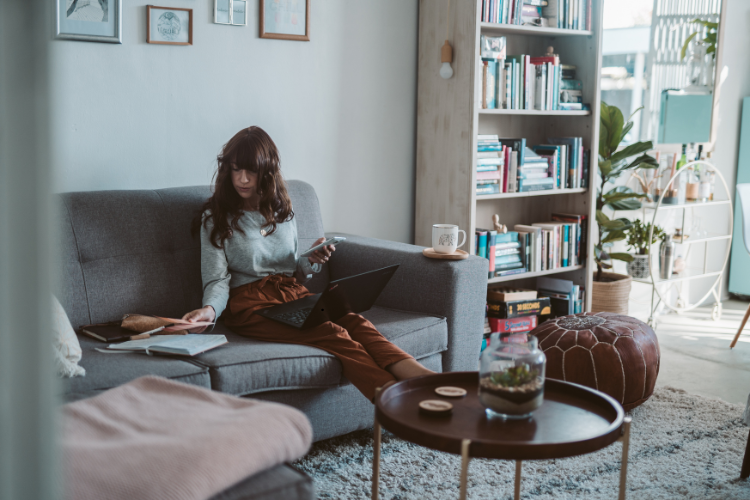How To Stop Procrastinating: 7 Things That Actually Work For Me

Sick of putting off your goals, canceling plans, and dodging the tasks that matter most? I’ll show you how to stop procrastinating with 9 simple and smart tips you can actually use.
It’s time to break those habits that hold you back and step into a better version of yourself.
Hi there — thanks for stopping by.
You could’ve done anything else right now. Maybe you thought about signing up for that e-course you keep putting off. Or starting the book you’ve been dreaming about writing. Or even tracking your workouts in a fitness journal because you know you can stick to it.
And no, I’m not here to guilt-trip you.
You’re here because you’re ready to break free from procrastination. That tells me you believe you can change.
You’re willing to act now instead of just thinking about it — and that’s a big deal.
But you know what isn’t a big deal?
Procrastination.
And the best part?
You can fix it.
Before I share how to stop procrastinating, though, it helps to understand why we do it in the first place. Let’s talk about what’s really going on.
Also Read: 7 Morning Habits Of Successful People That Set Them Apart
1. Start With Just Five Minutes
When I feel overwhelmed by a big task, I don’t tell myself I have to finish it.
I just tell myself to start and do it for five minutes.
That small step feels so much easier because I know I can handle five minutes, even on my worst day.
Most of the time, once I’ve started, I find myself wanting to keep going anyway.
But even if I don’t, at least I’ve done something, and that feels better than doing nothing.
If the hardest part is starting, trick your brain into it by promising just five minutes.
2. Break Big Tasks Into Tiny Pieces
One of the biggest reasons I used to procrastinate was because everything just felt too big.
“Write a paper” or “clean the whole house” sounded impossible.
But when I started breaking things into little steps — like “write the intro” or “fold the laundry” — it became way less scary.
I even write these little steps on my to-do list so I can check them off one by one.
Every checkmark makes me feel like I’m moving forward.
You don’t have to do everything at once.
You just have to do the next small thing.
3. Remove The Easy Distractions
I used to tell myself I’d “just check my phone real quick” before starting.
Then 40 minutes would pass, and I was still scrolling.
So now I make it harder for myself to get distracted.
I put my phone in another room, close the unnecessary browser tabs, and turn on “Do Not Disturb” mode.
Sometimes I even set a timer and tell myself, “No checking anything until this timer is up.”
I still get tempted, but without easy access, I’m much more likely to stay on track.
4. Work In Short, Focused Sessions
I tried sitting down for three straight hours before, and all it did was make me feel tired and bored.
So now I work in shorter bursts — usually about 25–30 minutes — and then I take a short break.
It feels so much more manageable, and I don’t burn out as fast.
Sometimes I even make it a little game: I’ll set a timer and challenge myself to see how much I can get done before it rings.
Then I stand up, stretch, or get a glass of water before starting the next round.
5. Stop Waiting To “Feel Motivated”
For the longest time, I thought I had to feel motivated before starting anything.
But honestly? The motivation rarely came.
I learned that action comes first, and motivation follows.
Once I start doing the thing — even if it’s awkward or slow at first — the energy usually shows up.
So I stopped waiting for the perfect mood or the perfect time.
I just begin, even when I don’t feel like it.
And more often than not, once I’m in motion, it gets easier to keep going.
6. Be Kinder To Yourself When You Mess Up
I used to beat myself up every time I procrastinated.
That only made me feel worse and made it even harder to get back on track.
Now I remind myself that everyone procrastinates sometimes.
It doesn’t mean I’m lazy or broken.
It just means I’m human.
When I slip, I try to forgive myself quickly and move on instead of wasting more time feeling bad about it.
It’s okay to have a bad day — just don’t let it turn into a bad week.
7. Make Your Environment Work For You
Sometimes the problem isn’t me — it’s the space around me.
When I try to work in a messy room or on a couch with the TV on, it’s no wonder I get distracted.
So I make my space as inviting as possible.
I clear off my desk, open a window, put on calm music, and set up everything I need within reach.
When my space feels good, I’m much more likely to actually sit down and focus.
Final Thoughts
Learning how to stop procrastinating isn’t about being perfect or working nonstop.
It’s about finding small ways to get started and keep going, even when you don’t feel like it.
These are the habits that have helped me most: start small, break it down, remove distractions, work in bursts, stop waiting for motivation, be kind to myself, and set up my environment.
If you’re feeling stuck right now, pick just one or two of these and try them today.
You don’t have to fix everything at once.
Just take one small step — and then another.
You’ve got this.
And if you have any tips that work for you, feel free to share them in the comments.
We can all learn from each other.








